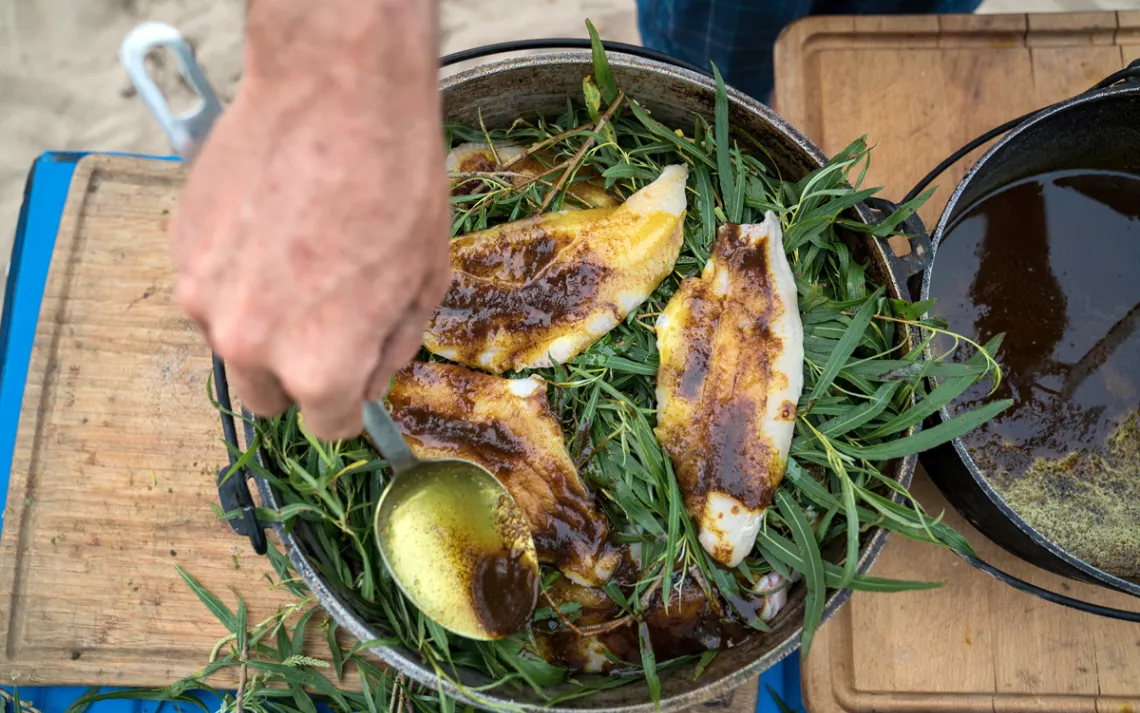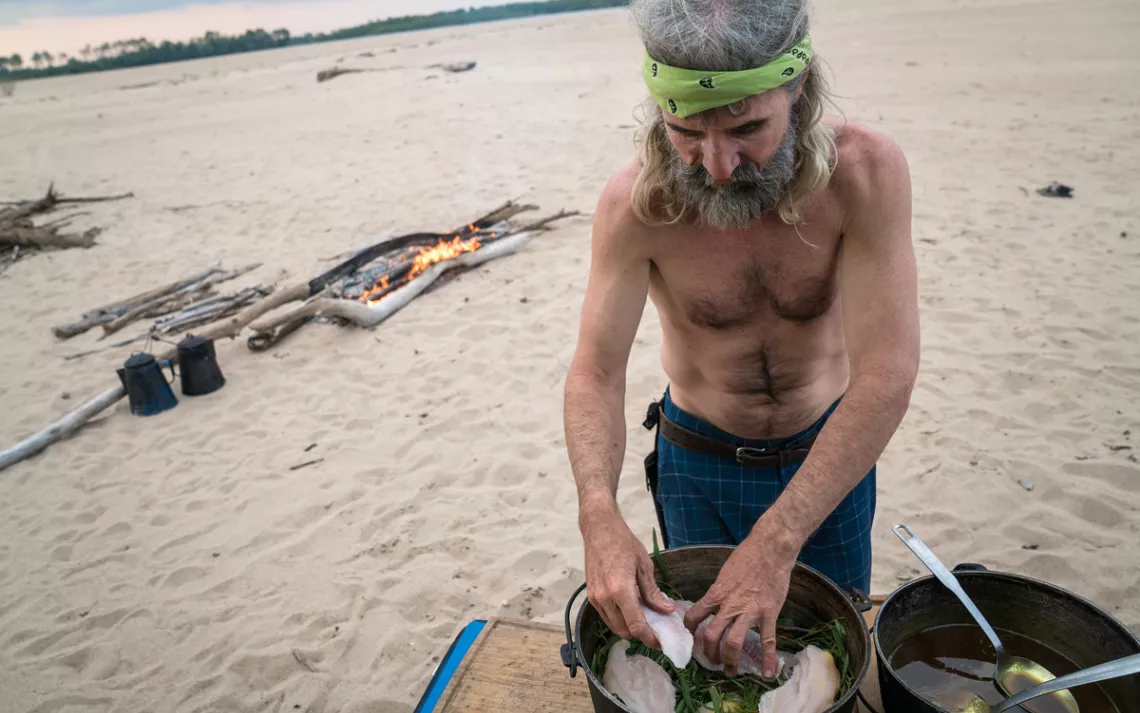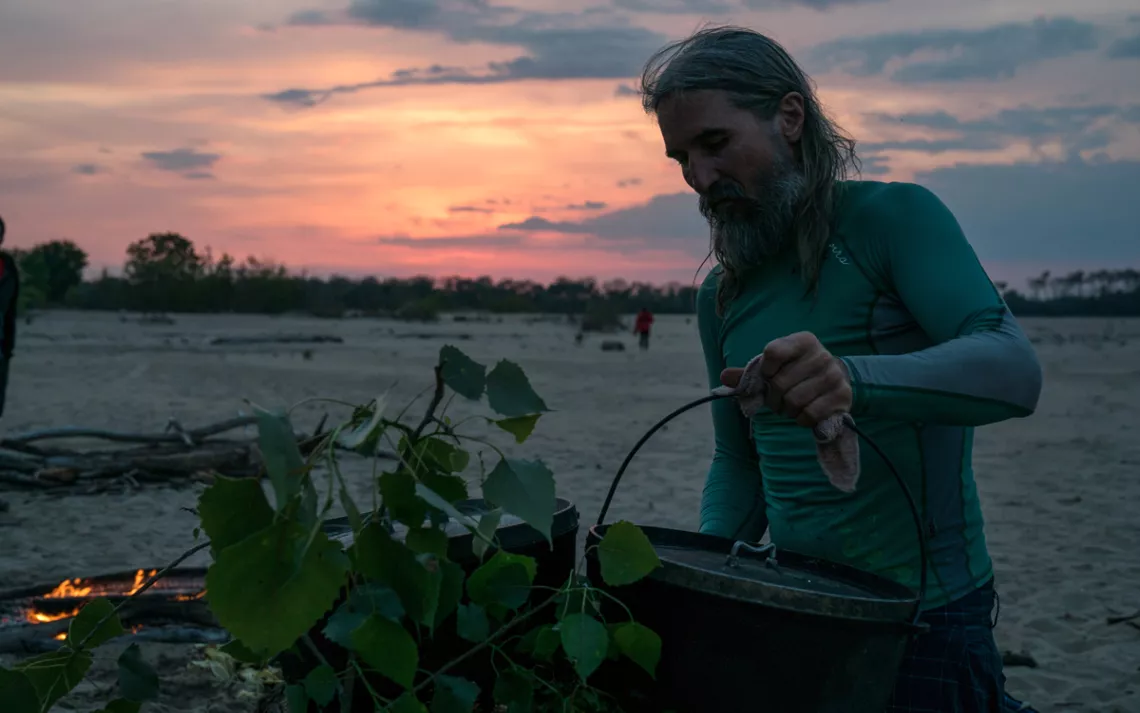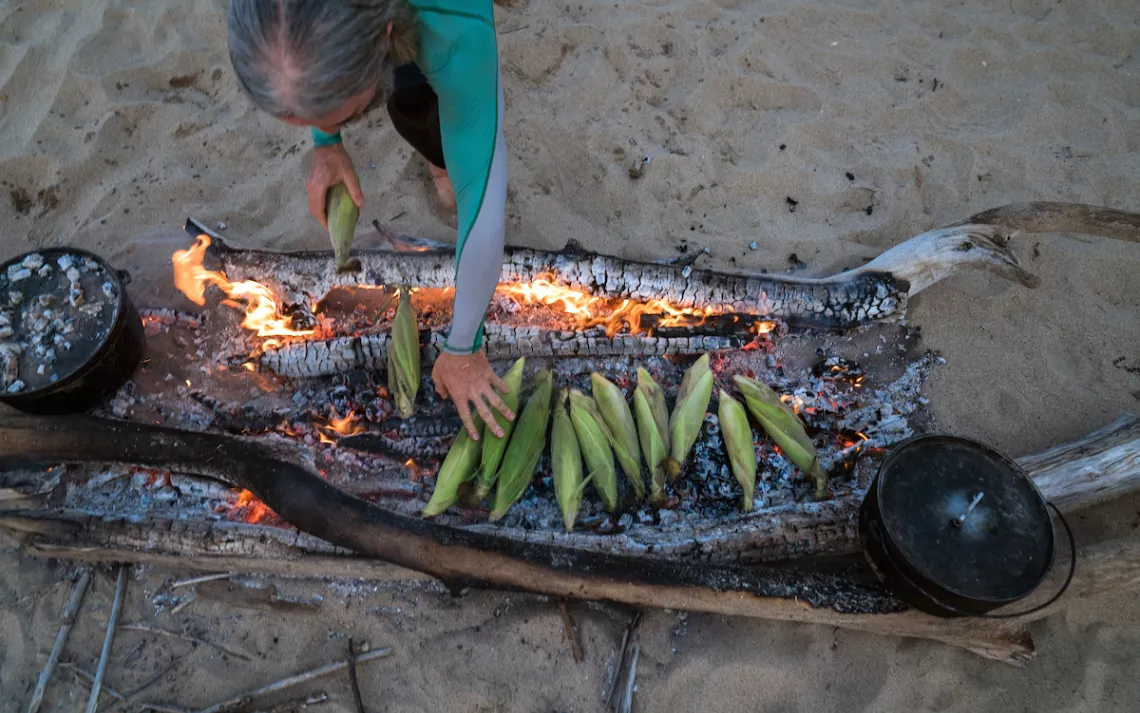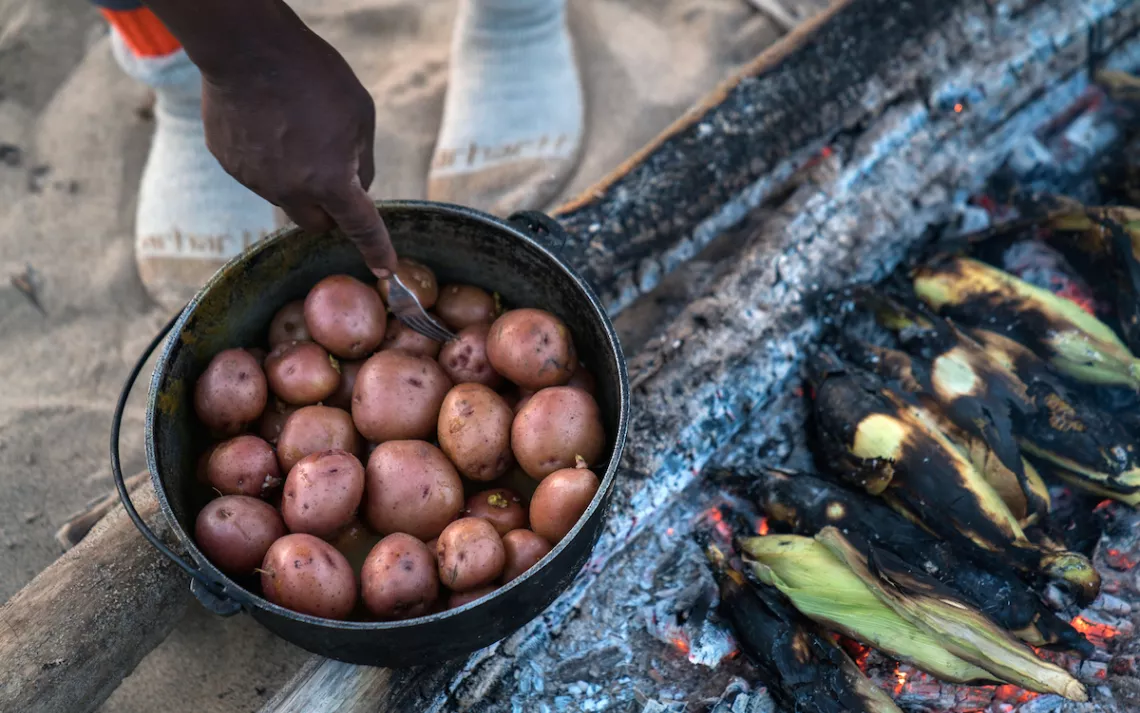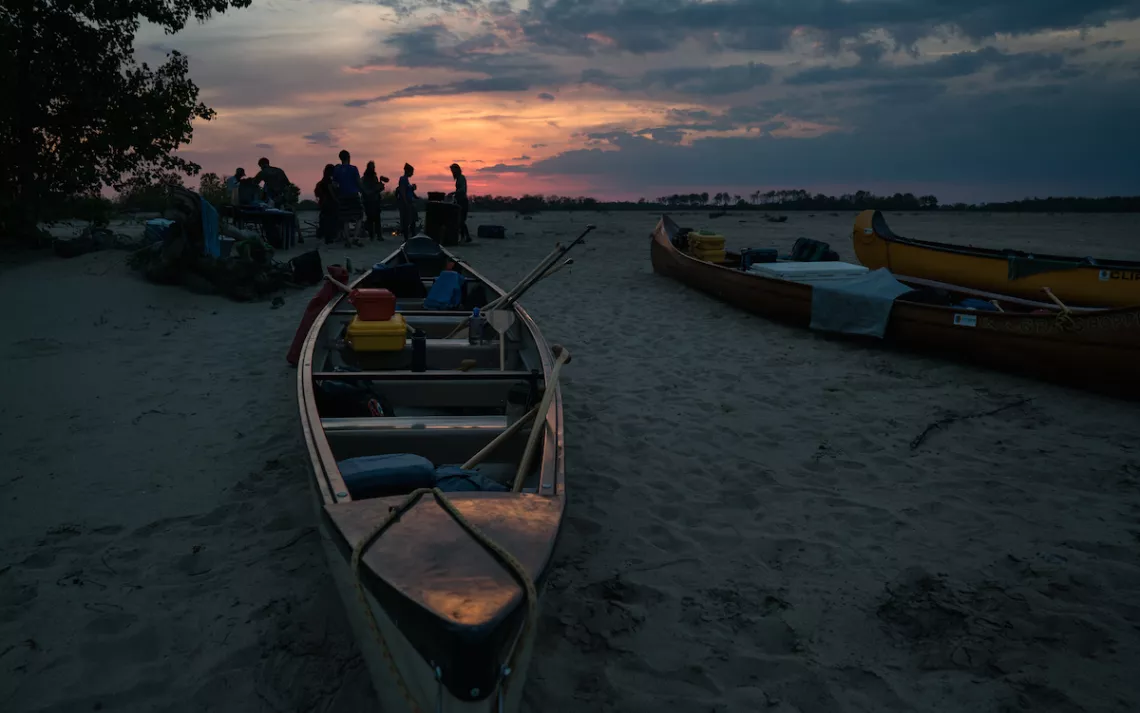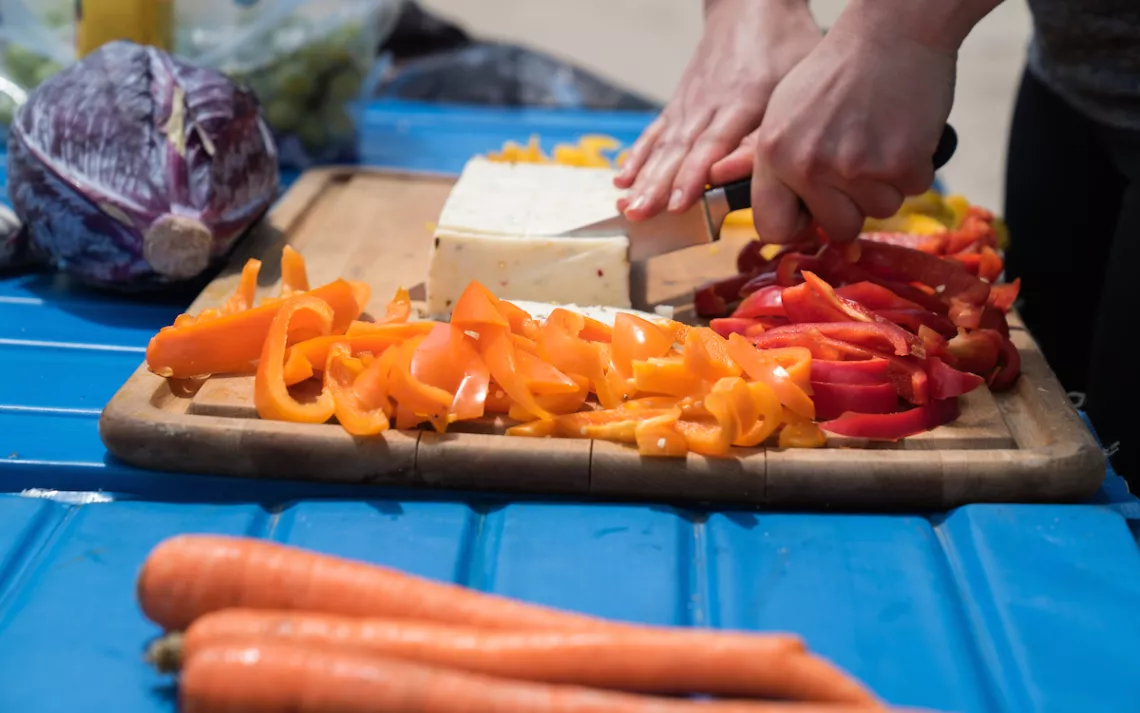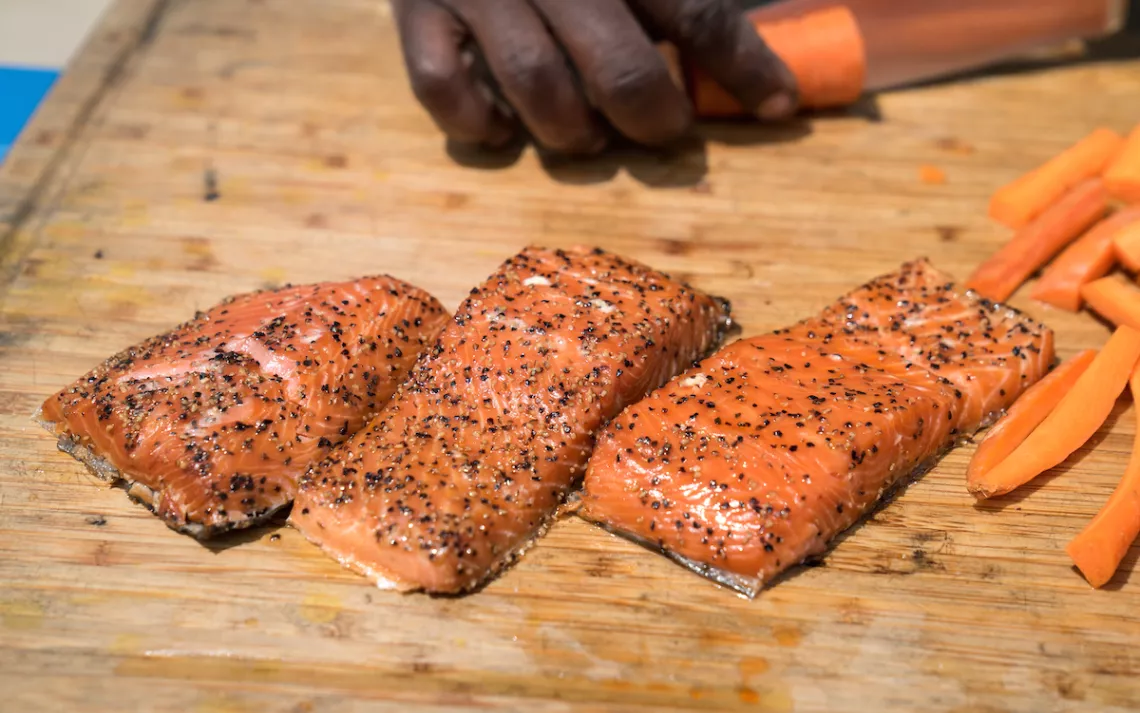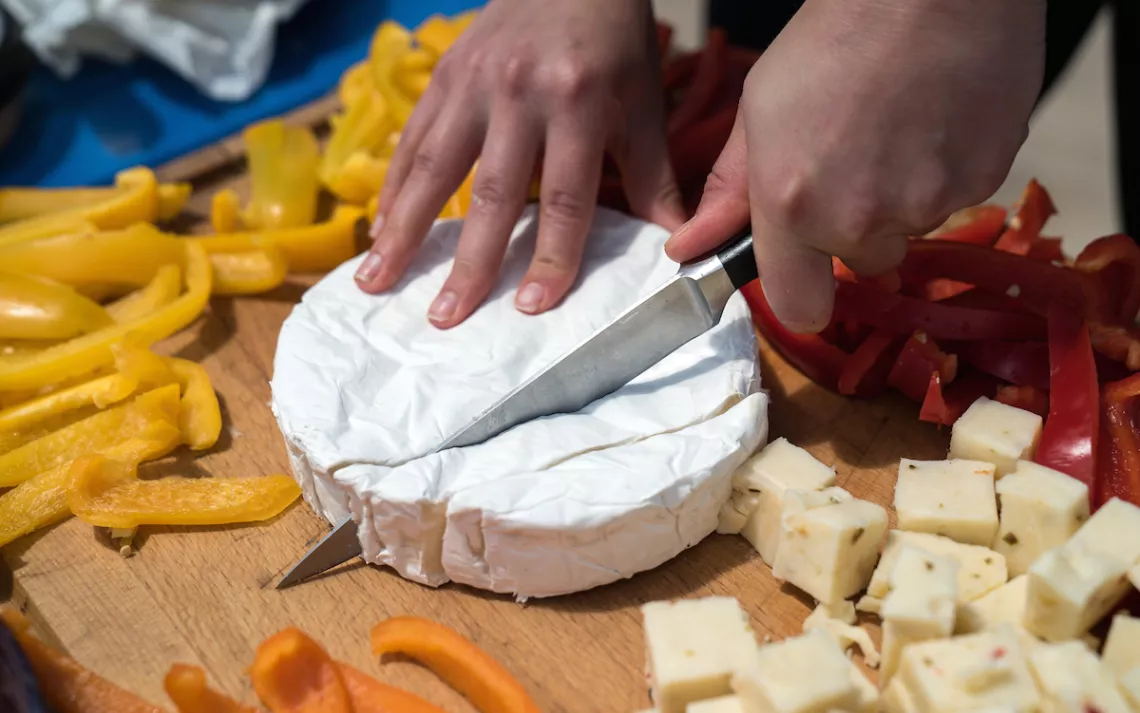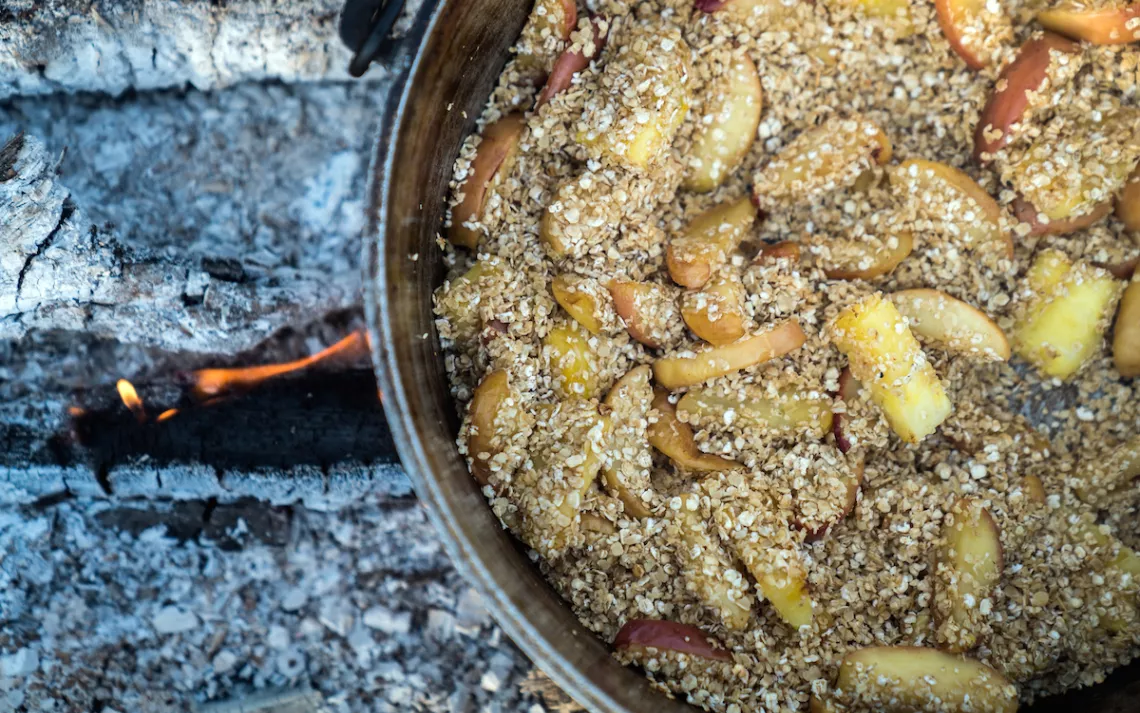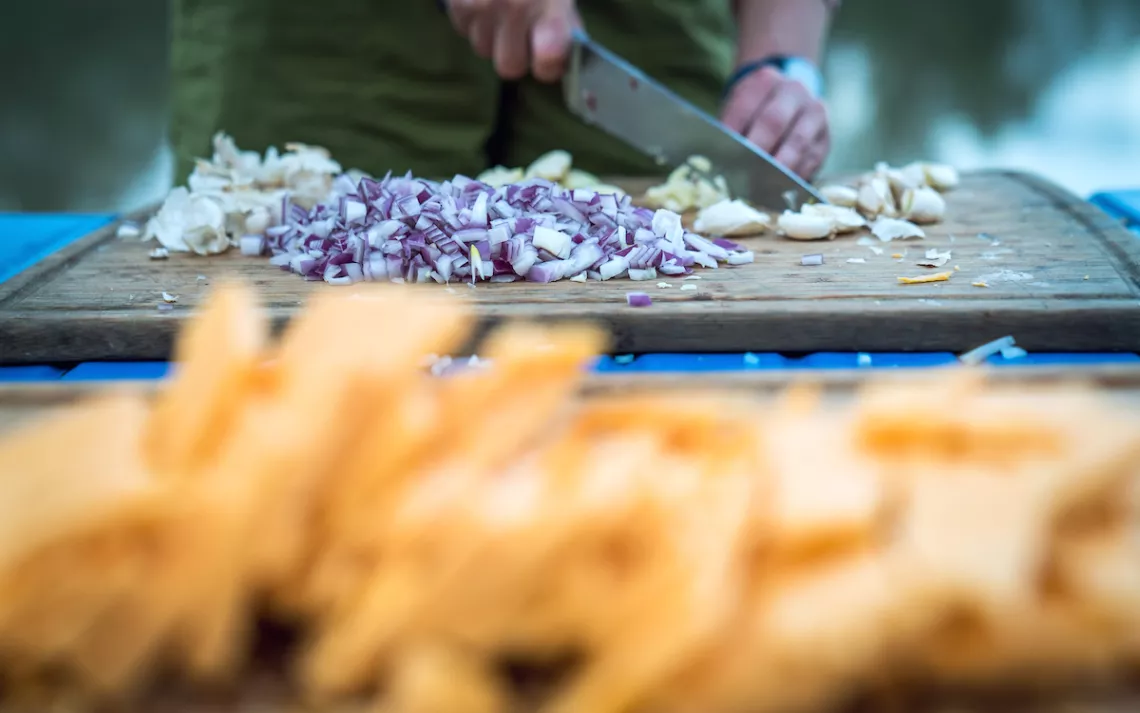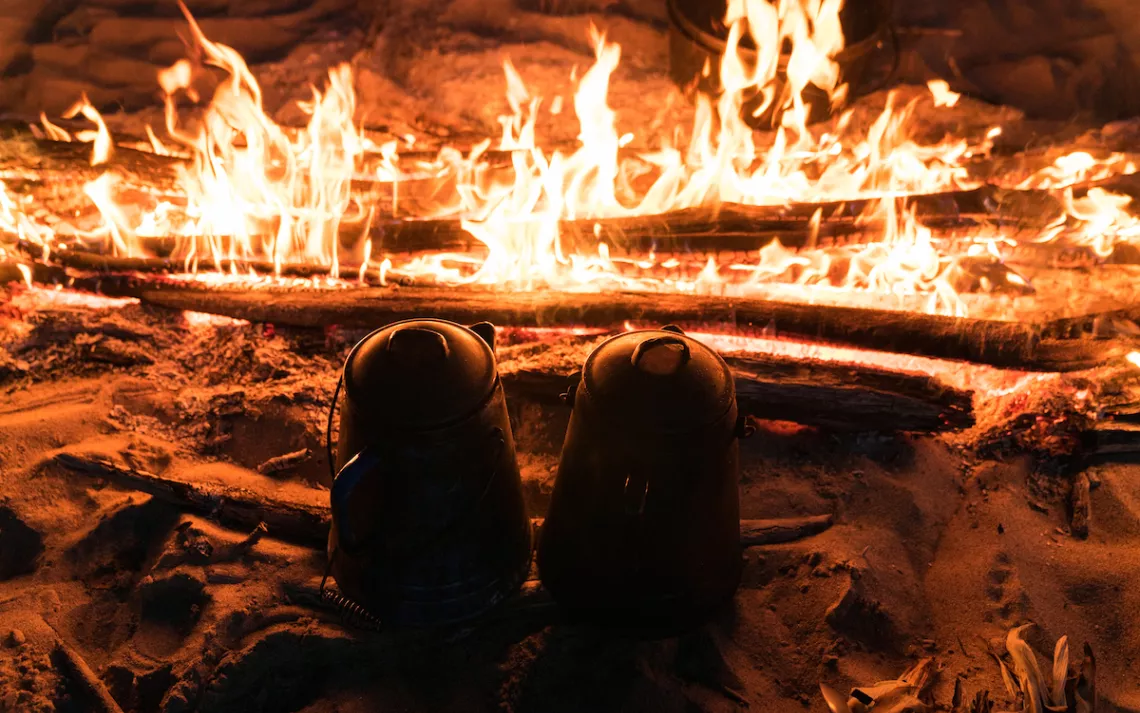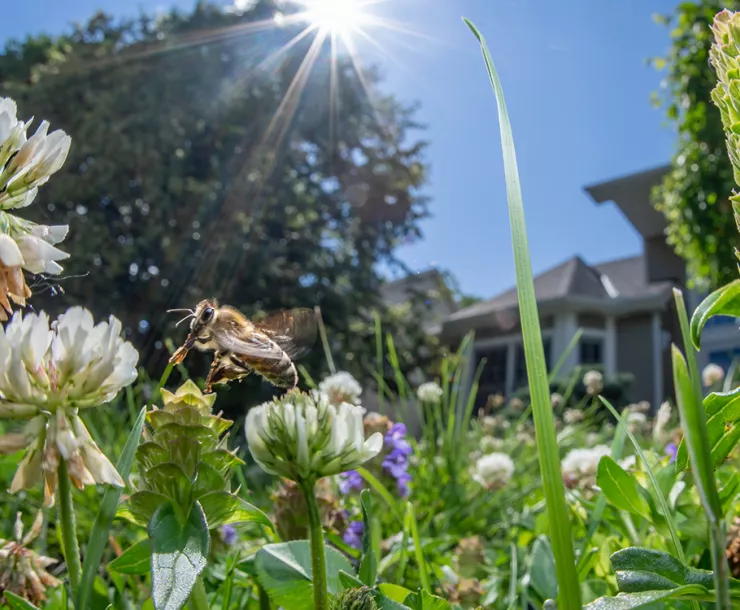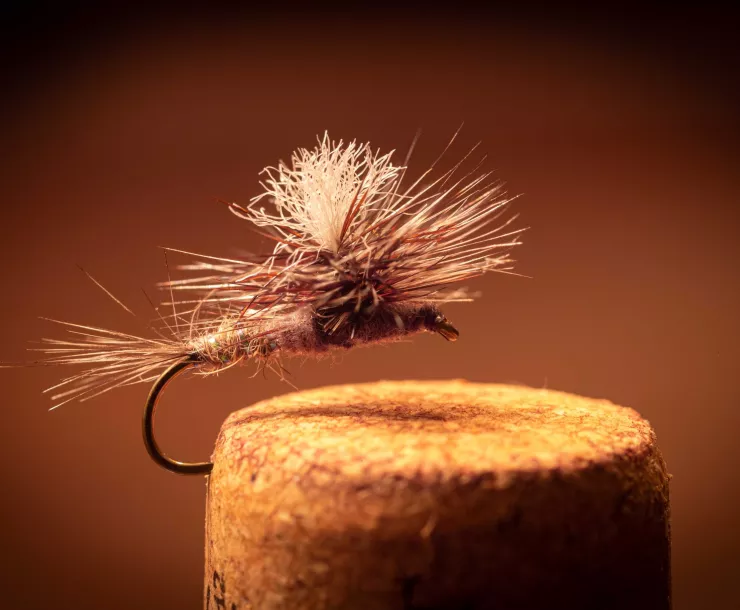River Adventures Are for Feasting: A Slideshow
Veteran paddling guide John Ruskey shows us how to sup right on the river. | Photos by Rory Doyle
Did you know that canoe trips are made for adventuresome gourmands? One of the great advantages of a multiday river trip is that you’ll have room to tote just about everything you need to truly feast. Unlike on a backpacking adventure, your body won’t have to bear the brunt of that load. Since long-distance paddling requires a great deal of energy, we sought out packing and food-prepping tips from a man who’s not only been paddling America’s largest and most storied waterway since 1982, but also regularly guides up to 65 fellow river rats down the mighty Mississippi, usually for days at a time. You can learn more about John Ruskey, founder of the Lower Mississippi’s first wilderness outfitter, Clarkdale’s Quapaw Canoe Company, in our July/August issue ("America’s River"), but for the purposes of this slideshow, know that Ruskey is also known as the gourmet chef of the Mississippi.
“I grew up in the Colorado Rockies, where my mother taught us all to cook when we were young, and where I did a lot of backpacking and hiking, so I know what it means to have to skimp and worry about carrying all that lightweight stuff,” says Ruskey, who describes supping from a canoe as a “luxury.” He says, “I always tell my guides to bring whatever food they like to eat themselves. Because if you’re gonna cook it yourself, you’ll put some love in it, and people will enjoy it.”
Here are Ruskey’s pointers for eating like a king or queen once it’s time to put down the paddle.
Hit up the farmers’ market and the grocery store before getting in the water. Prior to any multiday canoe trip, Ruskey and his guides stock up on plenty of fresh fruit and veggies, baked goods, rice, and sweet potatoes, which are Mississippi’s number-two crop (after forestry). “We try to include them whenever possible because they’re super nutritious,” he says, “but in general we buy whatever’s in season and looking good.”
Pack your cast-iron and be prepared to forage for willow. Quapaw canoers make nightly stops on the Mississippi’s large sandbars, or as Ruskey describes them, the “big islands of the river.” On arrival, adventurers search the island for willow, which tends to grow plentifully near the water. “Its smoke gives off a delicious aroma,” says Ruskey, who uses it to smoke meat and fish in cast-iron skillets, directly over coals. “One of our favorite meals involves putting down a good pile of coals and collecting fresh green willow leaves, rinsing them in the river, and then taking a whole catfish or filet. Put a layer of willow leaves on the hot coals, then put a layer of catfish on top of that, then another layer of willow leaves, another layer of catfish, and so on, depending on how many you’re feeding. The final layer should be willow leaves, because they start smoking and hold in the heat.” Once you get a good temperature going, the fish will cook in 15 to 30 minutes—at which point it’ll be ready to eat, even without seasoning. If you’re in more of a hurry, Ruskey recommends using a cast-iron dutch oven. “Layer willows and catfish right inside the dutch oven, and you can sprinkle on a secret sauce with turmeric and cumin, soy sauce, pepper, and olive oil or sesame oil—it gives nice color and good flavor, but it’s not necessary!”
Keep sides as simple as your mains. Corn on the cob roasts wonderfully over camp coals, according to Ruskey. “Take the whole ear and don’t chuck the husk,” he instructs. “Dip it in the water, and then put it directly on the coals. It takes 10 to 15 minutes to cook well, and you’ve gotta rotate it. The smoked flavor enriches it so much, you don’t need butter or salt or pepper.” Ruskey also roasts baked potatoes the same way, over the coals, and bread, too. “I always recommend a hearty multigrain, which doesn’t crush easily, like sliced bread.”
Also bring a big cooler. For lunch, Ruskey likes to dock at river islands and set out “sandbar smorgasbords” comprised of fruits, veggies, cheeses, smoked sausage, smoked fish, whole wheat and sourdough breads, tuna salad, hummus, and chips—and then invite everyone to help themselves, buffet-style. “We smoke the meat and fish beforehand at Quapaw facilities and keep everything in the coolers. To keep food extra cool during hot summer months, we cover the cooler with life jackets and pads,” Ruskey says. “If we’re careful, we can keep ice for a week in the summer.”
Organize your wares before paddling off. In addition to the cooler, Ruskey brings along a large waterproof box that he calls the “chuck wagon.” He explains, “That’s what carries most of the dishes and spices and bulk dry food. We organize everything by meal, putting all the breakfast stuff together, the lunch stuff, etc.—you just have to make sure the bread doesn’t get crushed.” Speaking of which, Ruskey avoids packing bread on trips longer than a week. “We’ll just bring tortillas and raw grains to cook.” Once paddlers reach a sandbar, the chuck wagon becomes an automatic counter, table, or storage place.
Remember that on the water, breakfast really is the most important meal of the day. One of Ruskey’s guides, former NFL player Mark “River” Peoples, developed an A.M. recipe he named for a famous feature of the mighty Mississippi—the Tower Rock formation in Illinois. “Tower Rock crunch is made from sliced tart apples, almonds, and walnuts or pecans,” Ruskey says. “You roast them in a dutch oven over the fire, and then you add oatmeal—the old-fashioned-style oats are best—and keep roasting everything for a minute, and then you add water and cook for five minutes. We generally eat that with honey or maple syrup, or yogurt or kefir, and fresh fruit. We prefer fresh-picked dewberries and mulberries when they’re in season, but use whatever’s fresh.” For a week on the river, Ruskey’s guides typically alternate between serving breakfasts of Tower Rock crunch with mornings of eggs and bacon cooked in the dutch oven over the fire.
Hydrate. And almost as importantly, caffeinate. Plan on toting along one gallon of water per person per day. “We can carry up to a week’s worth of water for any size group,” Ruskey says, “and for cooking beans or rice or coffee, we draw water right out of the Mississippi and boil it. Same goes for coffee.” Speaking of which, here’s Ruskey’s secret to making what he calls “river rat coffee”: “Take a coffee pot and fill it with Mississippi River water, sediment and all. Boil it for a minimum of 15 minutes, and add a whole bag of New Orleans chicory-style coffee—we get ours locally from Meraki, which is across the street from us in Clarksdale and offers a neat program wherin local youths learn to be coffee entrepreneurs.” (Similarly, Quapaw Canoe Company takes underserved youth out to the river to teach canoe-building and survival skills.) “Stir three times and let it sit for five minutes. Then stir three times in the opposite direction, and let it sit again. With chicory coffee, you have to wait 10 to 15 minutes. According to the natural settling method, all you need is time. If you pour a cup and it’s chunky, you need to wait a bit longer.” You can serve a lot of people this way, Ruskey says, because as you serve, you can dilute with more hot river water. “Rather than, ‘Good to the last drop,’ the saying with river rat coffee is ‘Good to the second-to-last drop.'”
Don’t forget dessert. While Ruskey’s guides might pack some chocolate or trail mixes, they very intentionally don’t, come sunset, do s’mores. “A lot of kids are disheartened at first,” says Ruskey, who always has chopped apples and apricots and carrots on hand. Guests simply stick them like marshmallows, and roast them over the campfire. “They taste just as good—roasting brings out their natural sugars—and don’t cause a huge mess. Plus, parents and school leaders are always happy when we do this, because the kids go to sleep more easily,” he says. “The most fun thing for kids is the roasting; they don’t care what it is.” Rather than packing sugary snacks like granola bars, Ruskey recommends packing bags of apples and oranges and passing them out in the canoe. “Fresh fruit perfectly satisfies everyone.” River rats’ favorite snack of all? “That would be watermelon,” Ruskey says. “Whenever it’s in season, we bring an abundance.”
 The Magazine of The Sierra Club
The Magazine of The Sierra Club
